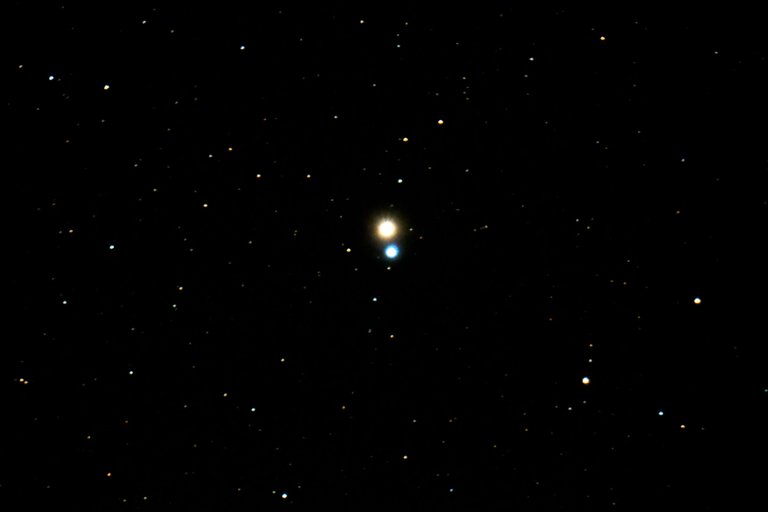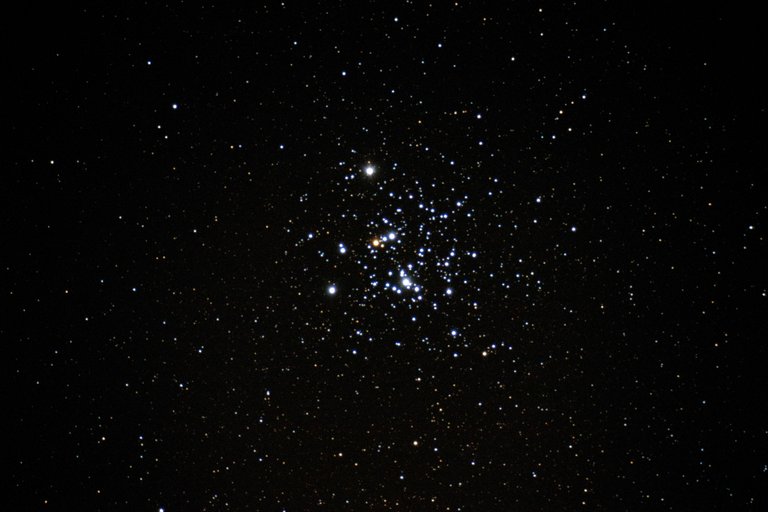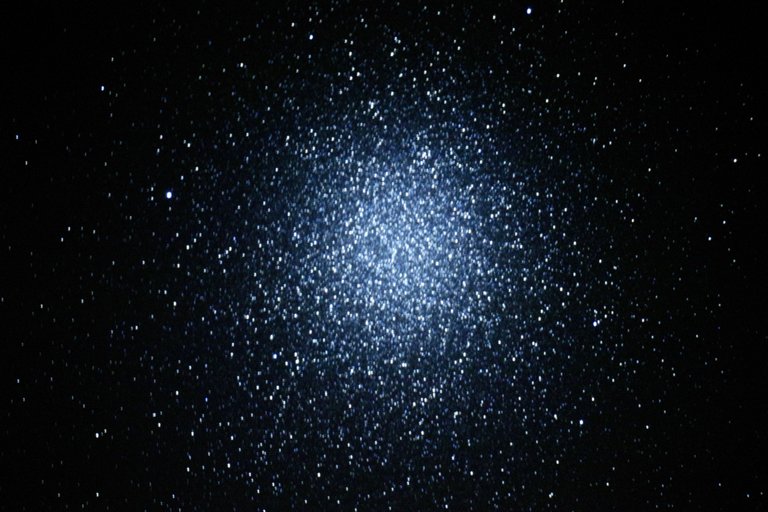
Albireo Binary Star: A binary star orbiting each other
When you look up into the sky and see the stars twinkling you are not actually seeing what's really there. 80% of the stars you see in the sky are not individual stars but are in fact binary stars or clusters. I'm going to attempt photographing a star cluster on the edge of the milky way - 18,000 light years away.
The reality is stars are too far away for our eyes to see properly. However, my Nikon Z50 can see what's going on! So, firstly what's a binary star? They are two stars or even multiple stars orbiting around each other. One example and also my favourite star is Albireo- at the top of this post. Here you can clearly see two stars orbiting each other one being blue and one yellow, showing that they are of different ages.

Jewel Box: An open star cluster showing different ages of stars
Then you have clusters which can be open clusters of hundreds or sometimes thousands of stars closely grouped together and finally globular clusters which can hold millions and millions of stars and much further away. Here I have photographed two examples, the jewel box (open cluster) and the biggest of them all Omega Centauri which holds upto 10 million stars and is 18,000 light years away from earth.

Omega Centauri: The greatest globular cluster, 10 million stars
My photo wasn't the best but I was still pleased I managed to capture anything at such distance from earth.